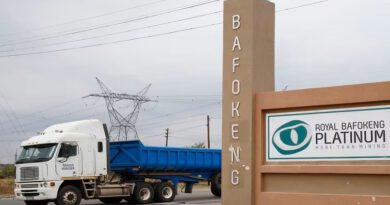Frozen foods distributor calls for ‘state of emergency concession’ at Eastern Cape port
Unlisted global distributor of frozen foods Hume International is urging government to implement a ‘state of emergency concession’ for the Eastern Cape’s Gqeberha port and to lift red tape that prevents efficient movement of food and other goods into the country.
The group’s call on Thursday comes in the wake of the KwaZulu-Natal floods, which caused delays at the Port of Durban, which have had a ripple effect on the country’s other ports such as at Gqeberha (formerly Port Elizabeth).
Read: Investments worth more than R26bn in SA’s ocean economy unveiled
Hume International’s operations director Roy Thomas says Gqeberha’s secondary port status means there is significantly less capacity and fewer inspectors available to perform the duty required of veterinary inspectors under Veterinary Procedural Notices (VPNs), a special concession regarding how imported goods are processed.
He notes that the lack of capacity and inspectors mean only a few containers are unpacked per day at the Nelson Mandela Bay-based port.
Hume International, which imported over 180 million kilograms of food products last year, says with the destruction of vital roads, power and infrastructure and damage to commercial cold stores in Durban, additional strain is being put on Gqberha’s port facilities.
“On behalf of all importers, we would like to respectfully urge government to alleviate the situation by granting an emergency concession for businesses to unpack a larger number of containers at the port [of Gqeberha],” it adds.
“This would ease some of the delays and remove pressure on commercial cold storage facilities by enabling goods to be distributed more quickly.”
The group says the functional cold stores in Durban are stocking up ahead of the upcoming season, leaving many without capacity to store the overflow of goods.
Read: Mercedes-Benz pushes for improvements to East London harbour
“Importers are therefore being forced to turn to Gqeberha, but the number of import cold storage facilities in the area, which have been approved by the Department of Agriculture, Land Reform and Rural Development, are very limited,” explains Frederick Hume, managing director of Hume International.
“Those who pursue this option [to move goods through Gqeberha] are then being faced with severe constraints in terms of the number of containers that may be unpacked each day because of regulatory restrictions on food and meat imports.”
This, Hume says, is aggravating supply chain disruptions and increasing the risk of potential food shortages.
Recalling the damage to cold stores in Durban during the July 2021 unrest, the company says government granted it a special concession to utilise the Gqeberha port for containers originally designated for Durban.
“To manage this extra workload, the previous Department of Agriculture, Forestry and Fisheries [Daff] further granted Hume’s request to appoint a secondary inspector for assignment to its facilities for 24-hours-a-day to comply with VPN requirements.”
In return, assignees reported to the local Daff office while the company settled the bill for the supply of inspectorate services.
Read:
Nelson Mandela Bay SME group backs Karpowership, plans march to Transnet
TNPA head office’s move to Port of Ngqura questioned
According to Thomas, the agreement assisted the company in expanding services in the Eastern Cape.
“Before the concession, we were only able to unpack seven containers a day in Gqeberha or 35 containers a week. After the concession was granted, we were immediately able to double this volume, moving to a double-shift unpacking system and hiring additional staff to help manage the workload,” he says.
However, the concession expired in October 2021 and the company went back to unpacking a reduced number of containers per day.
The company says the VPN application law “seems inconsistent” and hopes government will consider its request.
Nondumiso Lehutso is a Moneyweb intern.
Source: moneyweb.co.za



